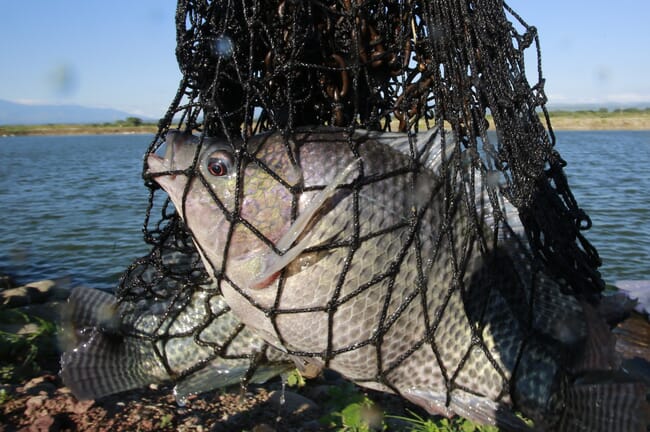
The study, which was undertaken by researchers in Egypt, was designed to investigate the effect of feeding system on the behaviour and performance of Nile tilapia (Oreochromis niloticus).
150 fish were distributed in to five equal groups, each of which was subjected to a different feeding schedule.
The first group was fed at 9 am, 11 am and 1 pm; the second group was fed at 9 am and 11 am, the third group was fed at 9 am and 1 pm, the fourth group at 11 am and 1 pm and the fifth group only at 9 am.
“The results revealed that feeding of Nile tilapia fingerlings three times per day is better than both one and two times / day due to increasing the chance of feed intake and ingestive behaviour which lead to optimum growth rate, decreasing surfacing behaviour, improving swimming behaviour and reducing aggressive behaviour, due to decreasing competition for food.
“This confirms that feeding frequency plays an important role in achieving Nile tilapia welfare and indicates the importance of feeding as an essential factor that should be adjusted in aquaculture industry for high growth,” the researchers conclude.
Further information
The study was published in Aquaculture, under the title “Impact of feeding system on the behaviour and performance of Nile tilapia (Oreochromis niloticus)”


